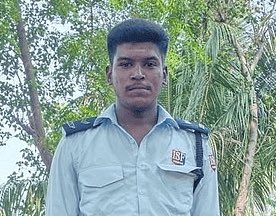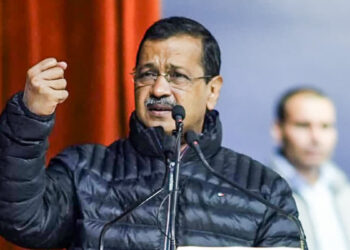Chennai, June 29, 2025 – Tamil Nadu, a southern Indian state, is facing growing criticism over a series of reported custodial deaths since the Dravida Munnetra Kazhagam (DMK) government came to power in 2021. Opposition leaders, activists, and citizens are raising alarms, with some claiming the state is becoming a hub for custodial violence. The recent death of a 27-year-old temple worker, B. Ajith Kumar, in police custody in Sivaganga district has intensified these concerns, sparking protests and demands for accountability.
A Troubling Trend
According to reports, at least 24 custodial deaths have occurred in Tamil Nadu since 2022, with some sources alleging over 100 such deaths between 2021 and 2022 alone. These incidents, often linked to allegations of police torture, have drawn sharp criticism from opposition parties and human rights groups. The death of Ajith Kumar, a security guard at the Madapuram Bhadrakaliamman temple, is a recent example. Detained by police in connection with a missing jewelry case, Kumar reportedly developed sudden health complications and was declared dead on arrival at a hospital in Madurai. His family and locals protested, alleging custodial torture and a lack of transparency from the police.
Political Backlash
Opposition leaders have been vocal in their condemnation. Bharatiya Janata Party (BJP) Tamil Nadu president Nainar Nagenthran called for Chief Minister M.K. Stalin’s intervention, accusing the DMK government of failing to protect vulnerable communities. “Even police stations are no longer safe spaces for the poor and marginalized,” Nagenthran stated. Similarly, Edappadi K. Palaniswami, leader of the All India Anna Dravida Munnetra Kazhagam (AIADMK), demanded a judicial investigation into Kumar’s death and compensation for his family. AMMK founder T.T.V. Dhinakaran also criticized the government, urging police reforms.
Posts on X reflect public anger, with users claiming that custodial deaths have become “normalized” under DMK rule. One post stated, “Tamil Nadu is fast becoming the capital of custodial deaths, with 24 lives lost so far, the latest being Ajithkumar from Sivagangai.” Another user questioned the silence of DMK leaders and social activists, noting their vocal criticism of similar incidents before 2021.
Historical Context
Tamil Nadu’s history with custodial violence is not new. The 2020 custodial deaths of Jeyaraj and Bennix in Sathankulam, Thoothukudi, shocked the nation and led to widespread protests. At the time, then-opposition leader M.K. Stalin criticized the ruling AIADMK government, demanding accountability. However, critics now point out that the DMK, now in power, has failed to address the issue effectively. A report by The News Minute noted that since 2021, Tamil Nadu has seen 21 “encounter killings” and multiple custodial deaths, with little progress in systemic reforms. The Madras High Court has also condemned the police’s disregard for constitutional rights, highlighting a lack of faith in the rule of law.
Government Response
The DMK government has faced accusations of inaction. In the case of Ajith Kumar, six police officers were suspended, but protesters and activists argue this is insufficient without a thorough investigation. The government has not issued a public statement addressing the broader issue of custodial deaths. Chief Minister Stalin, who oversees the Home Department, is under pressure to respond, with some calling for his resignation over the deteriorating law and order situation.
A Call for Justice
Human rights activists are demanding independent probes and systemic changes. Henri Tiphagne, Executive Director of People’s Watch, was recently denied entry to the Sathankulam police station while inspecting CCTV installations, raising concerns about transparency. Activists argue that internal inquiries often protect accused officers, who continue to receive salaries during suspension. The absence of a special court for high-profile cases like Jeyaraj and Bennix further fuels distrust.
Global Implications
The rising number of custodial deaths in Tamil Nadu raises serious questions about human rights and police accountability in one of India’s most developed states. For a global audience, this issue highlights the challenges of balancing law enforcement with the protection of individual rights. The DMK government’s silence and the lack of concrete reforms risk damaging Tamil Nadu’s reputation as a progressive state.
As protests continue and families demand justice, the spotlight is on Chief Minister M.K. Stalin to address these allegations and restore public trust. Without swift action, Tamil Nadu risks being labeled a state where custodial violence goes unchecked.
Note: The claim of 109 custodial deaths in 2021–22 could not be independently verified and should be treated as inconclusive. The figure of 24 custodial deaths since 2022 is based on multiple sources but requires further confirmation.





































